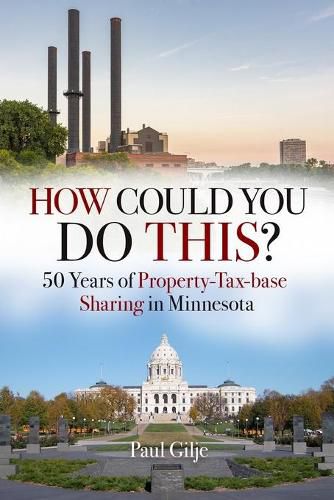Readings Newsletter
Become a Readings Member to make your shopping experience even easier.
Sign in or sign up for free!
You’re not far away from qualifying for FREE standard shipping within Australia
You’ve qualified for FREE standard shipping within Australia
The cart is loading…






How Could You Do This? highlights the half-century history of the drama in Minnesota’s property tax-base sharing law–more popularly known as the metropolitan fiscal disparities law– that began in 1968 with extensive controversy, and extends to the present day. The drama began in a Citizens League committee where the possibility of tax-base sharing first surfaced. It continued in a three-year battle in the Minnesota Legislature, followed by three lengthy, but ultimately unsuccessful, challenges in the Minnesota state courts. The drama then shifted to efforts to weaken the law’s provisions, which with one notable exception involving the Mall of America, were u nsuccessful. In the 1990s drama extended to Minnesota’s Iron Range, where similar tax-base sharing was enacted. Discussion, with more drama possible, has continued in Minnesota and in other states to the present day. The book contains meticulous documentation, with more than 300 footnotes. The Center for Policy Design (CPD) is publishing the book to help illustrate the importance of highlighting system change in public policy, as advocated by Walter McClure, founder, senior fellow and chair of the board of directors. McClure’s objective, as quoted in a foreword to the book: Systems and organizations tend to behave the way they’re structured and rewarded to behave. If you don’t like the way they’re behaving, you probably ought to change the way they’re structured and rewarded. Tax-base sharing adjusts the system within which municipalities compete with one another for tax base. Traditionally, winner-take-all , the system enacted in 1971 still favors the winners, but not by quite as much. Without the law a 13-to-1 ratio in per capita commercial-industrial value would prevail today between the wealthiest and poorest municipalities over 9,000 population in the Twin Cities metro area. With the law the difference is reduced to 6-to-1.
$9.00 standard shipping within Australia
FREE standard shipping within Australia for orders over $100.00
Express & International shipping calculated at checkout
How Could You Do This? highlights the half-century history of the drama in Minnesota’s property tax-base sharing law–more popularly known as the metropolitan fiscal disparities law– that began in 1968 with extensive controversy, and extends to the present day. The drama began in a Citizens League committee where the possibility of tax-base sharing first surfaced. It continued in a three-year battle in the Minnesota Legislature, followed by three lengthy, but ultimately unsuccessful, challenges in the Minnesota state courts. The drama then shifted to efforts to weaken the law’s provisions, which with one notable exception involving the Mall of America, were u nsuccessful. In the 1990s drama extended to Minnesota’s Iron Range, where similar tax-base sharing was enacted. Discussion, with more drama possible, has continued in Minnesota and in other states to the present day. The book contains meticulous documentation, with more than 300 footnotes. The Center for Policy Design (CPD) is publishing the book to help illustrate the importance of highlighting system change in public policy, as advocated by Walter McClure, founder, senior fellow and chair of the board of directors. McClure’s objective, as quoted in a foreword to the book: Systems and organizations tend to behave the way they’re structured and rewarded to behave. If you don’t like the way they’re behaving, you probably ought to change the way they’re structured and rewarded. Tax-base sharing adjusts the system within which municipalities compete with one another for tax base. Traditionally, winner-take-all , the system enacted in 1971 still favors the winners, but not by quite as much. Without the law a 13-to-1 ratio in per capita commercial-industrial value would prevail today between the wealthiest and poorest municipalities over 9,000 population in the Twin Cities metro area. With the law the difference is reduced to 6-to-1.